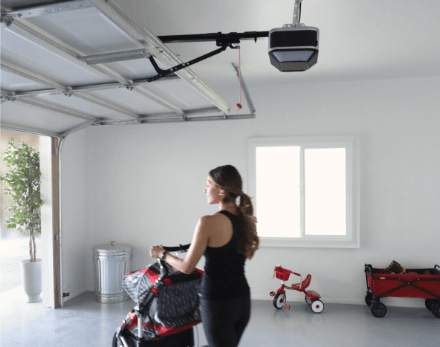Garage door openers have become an integral part of our daily lives, providing convenience and security to homeowners. However, like any other mechanical device, garage door openers have a limited lifespan. In this article, we will delve into the fascinating world of garage door openers, exploring their lifespan, factors affecting it, and tips to maximize their longevity.

Understanding the Lifespan of a Garage Door Opener
The question that often lingers in the minds of homeowners is, “What is the lifespan of a garage door opener?” The lifespan of these devices can vary depending on several factors. On average, a well-maintained garage door opener can last anywhere from 10 to 15 years. However, this is a generalized estimate, and individual cases may vary.
Factors Influencing Garage Door Opener Lifespan
- Frequency of Use: The more frequently a garage door opener is used, the shorter its lifespan. If you have a bustling household with multiple vehicles coming and going, your garage door opener might experience more wear and tear.
- Quality of Installation: The lifespan of a garage door opener is significantly influenced by the quality of its installation. A professionally installed opener is more likely to last longer and perform better than one that is installed haphazardly.
- Regular Maintenance: Just like any other mechanical system, regular maintenance plays a crucial role in extending the lifespan of a garage door opener. Simple tasks such as lubricating moving parts, tightening loose bolts, and checking the balance of the door can go a long way in ensuring its longevity.
- Climate and Environmental Conditions: Extreme weather conditions, such as intense heat or freezing temperatures, can impact the components of a garage door opener. Additionally, exposure to moisture and humidity can lead to corrosion, affecting the overall lifespan of the device.
- Quality of the Opener: The brand and quality of the garage door opener itself are significant factors. Investing in a high-quality opener from a reputable manufacturer can contribute to a longer lifespan and better overall performance.
Read too: What Would Make A Garage Door Open By Itself
Unveiling the Numbers
To answer the pivotal question, “What is the lifespan of a garage door opener,” it’s essential to consider the specific type of opener. Here is a breakdown of the average lifespans for different types:
- Chain-Drive Openers: These traditional openers are robust but tend to produce more noise. On average, they can last between 10 to 15 years.
- Belt-Drive Openers: Known for their quieter operation, belt-drive openers have a similar lifespan of around 10 to 15 years.
- Screw-Drive Openers: With fewer moving parts, screw-drive openers boast a lifespan of approximately 10 to 15 years.
- Direct-Drive (Jackshaft) Openers: These openers, which operate without a traditional rail system, often have a longer lifespan, ranging from 15 to 20 years.
Maximizing the Lifespan of Your Garage Door Opener
Now that we understand the factors influencing the lifespan of a garage door opener, let’s explore some tips to ensure it lasts as long as possible:
- Regular Inspection: Conduct regular visual inspections of your garage door opener and its components. Look for signs of wear and tear, and address any issues promptly.
- Lubrication: Keep the moving parts of the opener well-lubricated to reduce friction and minimize wear. This simple maintenance task can significantly extend the lifespan of the device.
- Professional Maintenance: Schedule professional maintenance at least once a year. A trained technician can identify potential issues and perform necessary adjustments and replacements.
- Weather Stripping: Ensure that the weather stripping around your garage door is in good condition. This helps in keeping out moisture, preventing corrosion, and prolonging the lifespan of the opener.
- Update and Upgrade: Consider updating your garage door opener if it’s outdated or showing signs of inefficiency. Newer models often come with improved technology and enhanced durability.
Conclusion
In conclusion, the lifespan of a garage door opener is influenced by various factors, including usage, installation quality, maintenance, and environmental conditions. By understanding these factors and implementing proactive measures, homeowners can maximize the lifespan of their garage door openers. Regular maintenance, timely repairs, and investing in a high-quality opener are key components of ensuring that your garage door opener operates smoothly for years to come. So, the next time you wonder, remember that proper care and attention can make a significant difference.



Leave a Reply